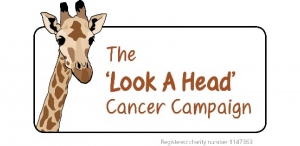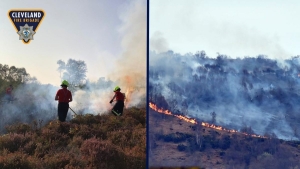While head and neck cancers may not be as well-known as some others, early detection and awareness can make a life-saving difference.
Why Awareness Matters
Head and neck cancers include cancers of the mouth, throat, voice box, nose, sinuses, and salivary glands. Together, they account for around 12,000 new cases in the UK every year.
These cancers can affect anyone, but when found early, treatment is often more effective — and survival rates improve significantly. Raising awareness helps ensure more people recognise the early warning signs and seek medical advice promptly
Recognising the Signs and Symptoms
Many symptoms of head and neck cancers can seem minor at first — which is why they’re often overlooked. If you experience any of the following signs for more than three weeks, see your GP or dentist:
• A persitent sore throat or hoarseness that doesn’t go away
• A lump in the neck, mouth, or throat
• Mouth ulcers red/white patches that don’t heal
• Difficuilty swallowing, chewing, or moving the tongue or jaw
• Unexplained pain in the mouth, ear, or jaw
• Nosebleeds, blocked nose, or sinus problems that don’t clear
• Changes in speech, or voice
These symptoms don’t always mean cancer — but getting them checked early can make all the difference.
Who Is Most at Risk?
Head and neck cancers can develop in anyone, but certain factors can increase risk:
• Tobacco use: Smoking or chewing tobacco is the leading cause.
• Alcohol: Heavy or frequent drinking greatly increases risk.
• Human papillomavirus (HPV): A growing number of throat cancers are linked to HPV infection.
• Poor oral hygiene: Gum disease or missing teeth can contribute to risk.
• Diet: Low intake of fruit and vegetables can increase vulnerability.
• Occupational exposure: Breathing in wood dust, paint fumes, or certain chemicals.
Men are more likely than women to develop head and neck cancers, and risk increases with age — most cases occur in people over 50.
Main Causes and Contributing Factors
Head and neck cancers usually start when cells in the lining of the mouth, throat, or airways begin to grow uncontrollably. This can be triggered by tobacco, alcohol, HPV infection, or a combination of lifestyle and environmental factors.
Reducing exposure to these risks can dramatically lower the likelihood of developing the disease.
How to Reduce Your Risk
There are many ways to protect yourself and promote good head and neck health:
• Avoid tobacco in all forms.
• Limit alcohol consumption.
• Eat a balanced diet rich in fruit and vegetables.
• Maintain good oral hygiene and attend regular dental check-ups.
• Get vaccinated against HPV if eligible.
• Use protection (such as dental dams or condoms) during oral sex to reduce HPV transmission.
• See your GP or dentist if you notice any unusual symptoms lasting more than three weeks.
When to Contact Your GP
If you notice persistent symptoms in your mouth, throat, or neck — even if they seem minor — don’t wait. Contact your GP or dentist as soon as possible. Early diagnosis can lead to more treatment options and better outcomes.
Supporting Each Other
Raising awareness about head and neck cancer isn’t just about symptoms and risks — it’s also about community, compassion, and connection.
At CVFM Radio, through the Cancer Connect Project, we’re committed to helping our community talk openly about cancer, share knowledge, and support those affected.
By learning the signs, reducing risk factors, and encouraging regular check-ups, we can all play a part in saving lives.
If you or someone you know has questions or concerns about head and neck cancer, visit NHS.uk/head-and-neck-cancer or speak to your GP for trusted information and support.
If you wish to hear a conversation then you can also listen to our interview with Pam Cooper, who is the Chair of the Look A Head Head & Neck Cancer charity here: https://youtu.be/rSLQsMaZVWs?si=dEII1_CAIBMevihI






































